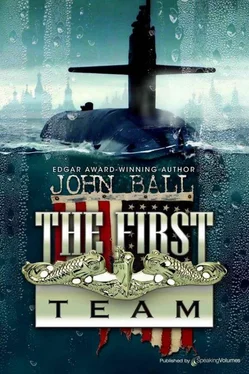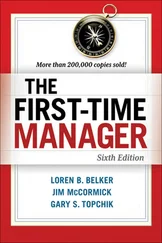Джон Болл - The First Team
Здесь есть возможность читать онлайн «Джон Болл - The First Team» весь текст электронной книги совершенно бесплатно (целиком полную версию без сокращений). В некоторых случаях можно слушать аудио, скачать через торрент в формате fb2 и присутствует краткое содержание. Год выпуска: 2013, Жанр: Триллер, на английском языке. Описание произведения, (предисловие) а так же отзывы посетителей доступны на портале библиотеки ЛибКат.
- Название:The First Team
- Автор:
- Жанр:
- Год:2013
- ISBN:нет данных
- Рейтинг книги:5 / 5. Голосов: 1
-
Избранное:Добавить в избранное
- Отзывы:
-
Ваша оценка:
- 100
- 1
- 2
- 3
- 4
- 5
The First Team: краткое содержание, описание и аннотация
Предлагаем к чтению аннотацию, описание, краткое содержание или предисловие (зависит от того, что написал сам автор книги «The First Team»). Если вы не нашли необходимую информацию о книге — напишите в комментариях, мы постараемся отыскать её.
Student protesters are being slaughtered in the Midwest.
The Jewish pogroms have begun.
You are now living in Soviet — occupied America!
One nuclear submarine and a handful of determined patriots against the combined might of Russia and Soviet-occupied America… The Most Explosive and Gripping “What If” Novel of Our Time!
First published January 1971
The First Team — читать онлайн бесплатно полную книгу (весь текст) целиком
Ниже представлен текст книги, разбитый по страницам. Система сохранения места последней прочитанной страницы, позволяет с удобством читать онлайн бесплатно книгу «The First Team», без необходимости каждый раз заново искать на чём Вы остановились. Поставьте закладку, и сможете в любой момент перейти на страницу, на которой закончили чтение.
Интервал:
Закладка:
Fitzhugh rubbed a hand across his face. “I still can’t believe that you’re alive and that I’m sitting here talking to you.”
“Well, you are.” The admiral let him take his time.
“I have read the address you prepared for me,” the senator began, thinking aloud. “If the submarine has been sunk, then it would be pure suicide to deliver it.”
“Precisely.” Admiral Haymarket nodded his approval.
“But if there is no broadcast.”
“Then we’re right back where we started and the war goes on indefinitely.”
“The war?”
“Yes, senator.” „
“You see no peace ahead?”
“Do you?”
Fitzhugh thought for a moment or two. “No,” he said at last. “There you have it. If you prefer not to go on the air, I’ll understand and we do have other resources. There’s a celebrated war hero from Hawaii in the Senate and if we can get hold of him…” Fitzhugh lifted his hand. “I have no one left to me,” he said. “Only the memory of my son. This is the second time that you’ve invited me to cut my throat. I may do it this time.”
Admiral Haymarket made it as easy as he could. “Why don’t we cut the tape,” he suggested. “Then we’ll hold it pending your final decision.”
“All my decisions are final, admiral,” Fitzhugh answered him. “I’ll make the broadcast.”
The videotape was done the same morning. Once he found himself facing the familiar broadcasting equipment, Solomon Fitzhugh assumed the manner that was internationally known; once more he was the wise, powerful, and sincere senior lawmaker who carried great weight and authority. He had to be believed; conviction rang from his every word. His performance was masterly and as the admiral watched on the monitor in his office he gave silent thanks that he had chosen the right man. If Solomon Fitzhugh said these things, and sounded as if he meant them, then it would hearten the whole nation and help immensely to bring things to a rapid climax. Speed, in moderation, was essential now: Magsaysay could not remain at sea indefinitely, if she was still afloat, and each day that passed made the enemy stronger in the United States.
When the senator had finished, he asked to see the admiral once more. When he was shown into Haymarket’s office he sat down limply and ignored the cup of coffee that was placed before him.
“I’ve delivered your speech,” he said. “Exactly as it was written — that was my agreement and I have carried it out. What do you want to do with me now?”
The admiral looked at him and saw an aging man from whom much energy had been effectively drained out. It was not the speech that had done it, he knew; it was the pressure the man had been under, the grief, the agonizing reappraisal of his position, the defeat of the personal philosophy that had guided him, publicly and privately, for years. For the first time since he had known Solomon Fitzhugh he felt for him.
A teletype in the corner of the office began to clatter; the admiral got up and stood before it, waiting for the message to be completed. When the machine stopped he tore off the yellow paper and brought it back to his desk. He studied it carefully and then handed it to Fitzhugh. The senator adjusted his glasses and read:
MY WARMEST AND MOST SINCERE APPRECIATION TO A BRAVE, HONORABLE, AND DEDICATED AMERICAN. YOU HAVE BROUGHT GREAT CREDIT TO YOURSELF AND TO THE MEMORY OF YOUR SON.
POTOMAC
The senator knew without asking, but he allowed himself to have a small added satisfaction. “The signature…”
The admiral understood completely. “The President,” he said. “He was notified and was watching.”
“He is all right then?”
“Very much so.”
“Is he here?”
Haymarket shook his head. “I trust you completely, senator, but you have no need to know.”
“Of course.”
Haymarket became more practical, and very considerate. “You will be our guest here for a while, sir, I believe that was explained to you before you came.”
“Yes, admiral, it was.”
“Then one of our people will look after you beginning immediately. It may please you to know that we have brought your man from Washington and he will be here shordy to take care of your needs for as long as you are with us.”
Fitzhugh recovered a little. “That is most kind of you, admiral.” “Nothing at all, senator. As a matter of fact he might have been in an awkward position if we hadn’t protected him and we deemed it only good judgment. Now, sir, let’s hope to God that our submarine is still at sea.”
“Amen,” Fitzhugh said.
When the amenities were over and Senator Solomon Fitzhugh had been shown to the quarters he would have to occupy for the time being, a harder and more factual appraisal of his work began almost immediately. This was Ed Higbee’s show, and to him the rest of the First Team gladly deferred. Higbee saw the brief tape three times and then individual parts of it once again before he ventured an opinion. “It isn’t perfect, far from it,” he told General Gifford, “but all things considered it is damn good. I’m going to use it as is. If we tried to patch out the few soft spots, or asked Fitzhugh to redo the whole thing, we’d probably lose more than we’d gain in the process.”
“When are you going to spring it?” the general asked.
Higbee glanced at his watch. “No good news story is improved by needless delay; it goes out tonight. The cut-ins on the major networks are all set up, and you can take it from me that it’s been one hell of a job. We won’t get full coverage, and we’ll undoubtedly get cut off in some places, but in the main we’ll get through.”
“You said you had a gimmick for building the audience.”
Higbee nodded. “There are still a considerable number of air-raid sirens left operational in the major cities around the country, and in most of the smaller ones as well. Stan Cumberland worked out a system so that we can set most of them off about five minutes before air time. When the American public hears that racket, you know what’s going to happen: everybody’ll be running to turn on the TV or radio to find out what it’s all about. Then on goes the Fitzhugh tape. I’m counting on a lot of the local fuhrers to think that this is their own people’s work and to let it ride. It was pretty carefully written with that in mind.”
“You should reach a good percentage of the country,” Gifford said. “I like the air-raid warning idea — if it works, it’s good.”
Higbee punched a cigarette into an ashtray. “I hope to reach as many as I can for their own good, but I’m really talking to the Actor; you understand that. And to Zalinsky and Rostovitch. Zalinsky may miss it, in the hospital, but he’ll get the word.”
“I think everyone concerned should see the tape before it goes out.”
“Barney had the same idea; I’ll screen it at this afternoon’s meeting and outline the plans. Then, unless someone disagrees, we’ll go—”
The conversation stopped there, the men at the top of Thomas Jefferson had long ago cultivated the habit of leaving out unnecessary things that were mutually understood.
It seemed to Hewlitt that the air had suddenly become much sweeter to breathe. The tension that he had been living under for weeks had been lifted; now he no longer had to hold himself in continuous check, guarding every sentence that he spoke, every gesture that he made. All playacting was ended. He was under a new kind of cloud, but the danger that it represented was simply the hazard of getting physically caught. He could get the breaks or they could get him, but so long as he remained free the air was wonderful.
And he had Barbara with him. He remembered very keenly what she had said while she had been throwing things literally into her suitcase and he presumed that he was responsible. In fact he hoped to God that he was, because she was his girl and if anyone was going to get her pregnant he preferred that it be himself. He had no illusions that he was the first man ever to make love to her, as he had never pretended that she was the first girl with whom he had ever been in bed. Somewhere in the dim past Mrs. Grundy had run screaming up the flue and people had changed their thinking about such things.
Читать дальшеИнтервал:
Закладка:
Похожие книги на «The First Team»
Представляем Вашему вниманию похожие книги на «The First Team» списком для выбора. Мы отобрали схожую по названию и смыслу литературу в надежде предоставить читателям больше вариантов отыскать новые, интересные, ещё непрочитанные произведения.
Обсуждение, отзывы о книге «The First Team» и просто собственные мнения читателей. Оставьте ваши комментарии, напишите, что Вы думаете о произведении, его смысле или главных героях. Укажите что конкретно понравилось, а что нет, и почему Вы так считаете.












